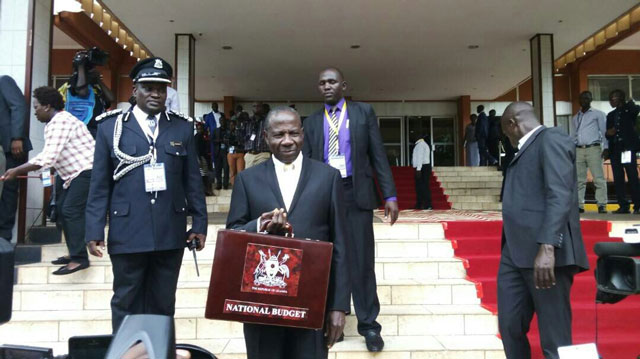
CSBAG, listed ministry of energy, Uganda police, national medical stores, and the parliamentary commission which take the lion share of the supplementary budget, with 23%, 11.3%, 9.1% and 7.3% respectively. “Where we have previously blamed the custodians of the budget, which is the ministry of finance, we have now realized that the pressure for supplementary budget comes from other MDAs,” Mukunda noted.
As a way forward, CSBAG, wants supplementary expenditure, where it shows poor planning, to only be approved with sanctions to the accounting officers responsible for the requesting entity.
The CSOs also proposed that austerity measures are taken to undo unnecessary supplementary expenditures. “If within a financial year, an entity realizes a need to spend money outside the planned and approved budget, they need to schedule it to take priority in the next planning cycle,” Mukunda advised.
‘Supplementary budgeting is weakening institutional mandate’
The CSOs, expressed concern about the current state of budgeting in the country, which they said was affecting service delivery and economic development. They pointed out poor implementation of the policy and legal guidelines of the supplementary budgeting as stipulated in the PFM Act 2015, as amended, and the PFM regulations 2016.
“The law allows for expenditure of up to 3% of the national budget without parliament approval. However, the PFM regulations, are specific about supplementary budgets being allowed only if they are unforeseeable, unavoidable and unabsorbable, but we continue, to see salaries and allowances on supplementary schedules,” Mukunda said.
According to the CSOS, supplementary budgeting is weakening institutional mandate, control and oversight. They noted that when supplementary budgets are implemented outside the official mandate of an institution, it is likely to affect quality assurance and public safety.
The CSOs also pointed out how supplementary budgets encourage poor planning and fiscal indiscipline adding that the inability, to make accurate salary projections, for government workers, fuels borrowing and supplement, a sign of poor planning.
CSBAG, also highlighted that fact that supplementary budgeting weakens other sector and MDA budgets which resources to finance the supplementary are cut. “
“When government presents these supplementary requests, they don’t articulate the sources from which the extra resources are going to be got. Since we run a cash budget, budget cuts cannot be enforced, government experiences cash constraints due to the spending pressures and ends up borrowing,” Mukunda noted. The CSOs also pointed out how supplementary expenditure is more of recurrent than development. They noted that 58% of the supplementary request in schedule 1, of the FY2017/18, are recurrent, which they said signals budget indiscipline.
***
SOURCE: CSBAG newsletter
 The Independent Uganda: You get the Truth we Pay the Price
The Independent Uganda: You get the Truth we Pay the Price


